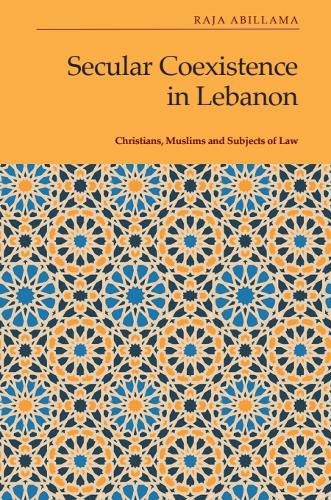Readings Newsletter
Become a Readings Member to make your shopping experience even easier.
Sign in or sign up for free!
You’re not far away from qualifying for FREE standard shipping within Australia
You’ve qualified for FREE standard shipping within Australia
The cart is loading…






A study of the coexistence of Muslims and Christians in Lebanon through an investigation of Lebanese law.
The book considers coexistence as an organising or structuring principle of the modern Lebanese state, and of its legal order. It analyses the kind of legal arrangement that coexistence dictates, and the legal processes that sustain coexistence. It reaches beyond the law to describe or provide an account of coexistence as constitutive of a secular sensibility or form of life, a sensibility or form of life that finds its articulations in specific ways of thinking, doing, and feeling. It describes some of the concepts, practices, and attitudes of coexistence, through which Muslims and Christians in Lebanon are secured a place and secured in place, enabled and constrained to make legible their 'religious' difference and distinctiveness through marriage and its consequences (the family), and to keep in check, restrain, or contain their 'religious' passions. It proposes that the coexistence of Muslims and Christians in Lebanon is Lebanese secularism.
$9.00 standard shipping within Australia
FREE standard shipping within Australia for orders over $100.00
Express & International shipping calculated at checkout
A study of the coexistence of Muslims and Christians in Lebanon through an investigation of Lebanese law.
The book considers coexistence as an organising or structuring principle of the modern Lebanese state, and of its legal order. It analyses the kind of legal arrangement that coexistence dictates, and the legal processes that sustain coexistence. It reaches beyond the law to describe or provide an account of coexistence as constitutive of a secular sensibility or form of life, a sensibility or form of life that finds its articulations in specific ways of thinking, doing, and feeling. It describes some of the concepts, practices, and attitudes of coexistence, through which Muslims and Christians in Lebanon are secured a place and secured in place, enabled and constrained to make legible their 'religious' difference and distinctiveness through marriage and its consequences (the family), and to keep in check, restrain, or contain their 'religious' passions. It proposes that the coexistence of Muslims and Christians in Lebanon is Lebanese secularism.